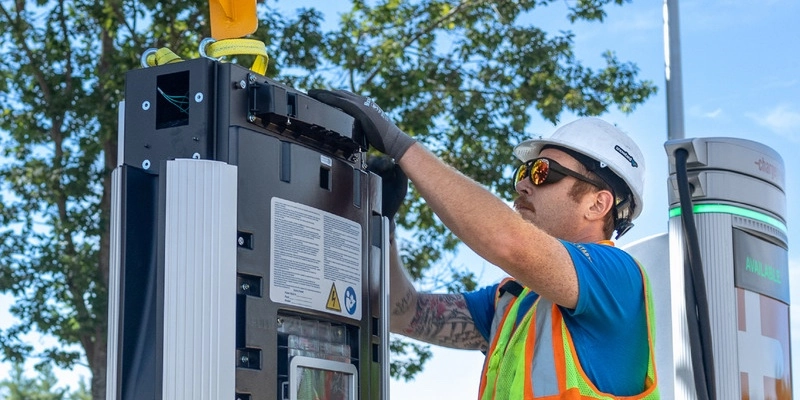To meet the demand for charging points, which increases every year and will continue to grow in pursuit of meeting national and European objectives, installers are essential.
They started as electricians, continued specializing in the photovoltaic sector, among others, and now they are entering the world of electric mobility, but, as can be heard among companies and associations, there is a lack of professionals.
What is the reason behind this?

Jean Francois Picard, Product and Training Manager at Amara NZero, tells Mobility Portal España that the area of solar energy, in which they stand out, was booming two years ago.
“Therefore, they had no time or need to consider other sectors,” he explained.
What’s more, he assures that this problem already occurred at that time, when it was very difficult to find people with experience.
Starting in 2023, “there is a readjustment in the sector, because not everything can always be exponential.”
Consequently, now is when some try to cover other markets or expand their range of services.
In addition to because they are two markets that go closely hand in hand.
The transition towards sustainable mobility undoubtedly generates a growing number of new job opportunities with vacant positions.
The demand that is being generated, which in principle is great news for the sector, translates into a shortage of qualified personnel in companies, thus hindering the ability to fulfill the enormous number of projects.
This could trigger “bad practices linked to intrusion” in a profession that requires influencing professional training, as detailed by the Business Association for the Development and Promotion of Electric Mobility (AEDIVE) in its yearbook.
Not only this, but there is a perceived lack of interest on the part of young people.
According to the National Institute of Statistics (INE), 45.7 per cent of workers in the construction sector, where electrical installers are included, are over 45 years old.
In the reform of the European Directive on Energy Efficiency, they have echoed this problem by underlining the need to have competent and reliable installers in this area.
In line with this vision, public bodies must make every effort to comply with the implementation of these initiatives and to guarantee this, Member States are required to establish equivalent certification or qualification systems.
Along with appropriate training programs for energy service providers, energy auditors and other professionals involved.
Therefore, the Government announced in 2023 the creation of 4,000 new Vocational Training places in programs related to renewable energies.
It is estimated that its potential will generate approximately 450,000 jobs in Spain over the next decade.
Not only is the administration promoting this trade, but charging point operators (CPOs) are also doing so.
According to calculations made by the startup CargaTuCoche, it is anticipated that a 25 per cent increase in the number of charger installers will be necessary during 2024 alone.
This will result in the generation of 300 new jobs in the sector.
Given this situation, many CPOs are implementing training programs to train specialized installers in this area.
These courses are increasingly necessary taking into account the constant innovations that are launched in the sector, such as the Megawatt Charging System (MCS).
It is essential that training and specialization are integrated into the country’s strategy to ensure that its development is not hampered by a shortage of specialists.
In this regard, Jean Francois Picard emphasizes: “We know that the market is there, although we thought it would grow more quickly.”
He adds: “This is possibly due to a lack of specialized individuals, especially in the commercial public charging sector, where the requirements are more complex.”








